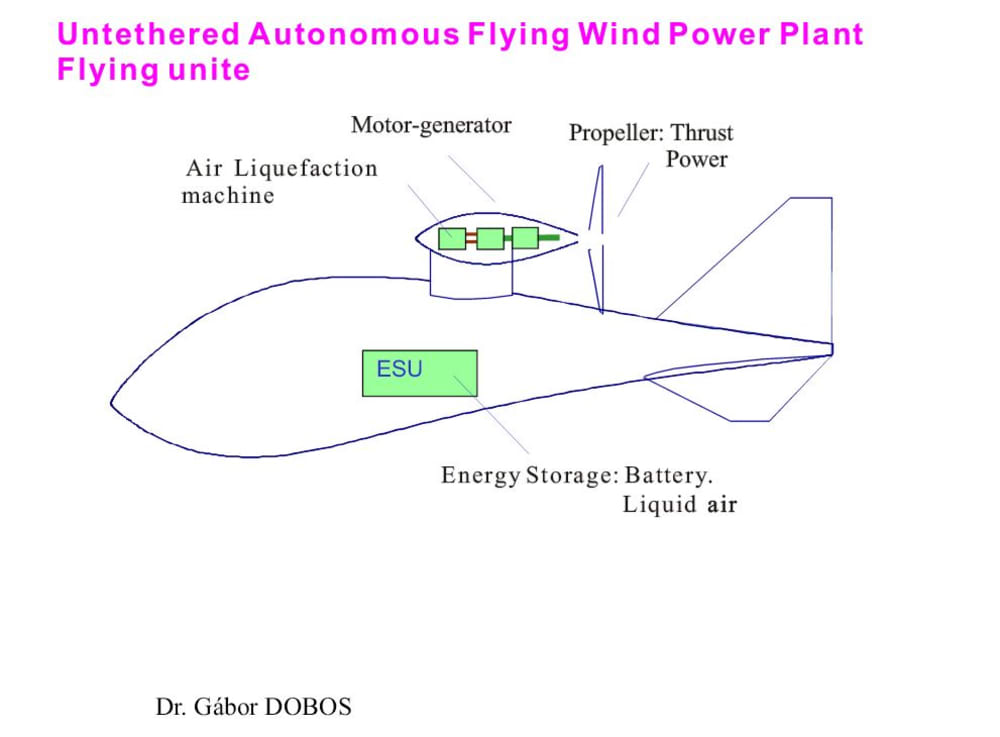Untethered Autonomous Flying Wind Power Plant
Conventional wind power plants (WPP) have their limits due to the low energy density and fluctuations of surface winds, as well as their low efficiency. The idea of harnessing the more intensive, persistent high-altitude winds seems to be promising. Known devices are floating in the air and tethered to the ground. The energy generated should be transmitted to the ground through a cable, arranged parallel to the tether.
The question whether the tether has any functions that make it indispensible arises.
Our answer is NO.
Untethered flying units (gliders, Fig 1.)are also capable of harvesting wind energy, using updrafts and windgradients.
Temporary energy storage on the plane is the most critical problem of the idea. The invention itself grants a great degree of freedom to the user. Liquid air or batteries are two prefered competing methods.
Benefits:
The airspeed of our DS-ing (dynamic soaring) gliders (called "IFO" Identified Flying Object)) is 8-10 times the speed of the ambient wind gradient. That means that a prop mounted on a DS-ing glider is capable of producing 216 – 1000 times greater power than a NOT DS-ing (e.g.: tethered) one at the same conditions.
At the same time, the high speed of our gliders allows for smaller, lighter and less expensive devices at the same power.
The winds (e.g.: Jet Streams) continously alter their position. Our gliders can follow this motion of the winds, while other WPPs are prevented by the tether or by the wind tower from doing so.
It does not need large areas to function like conventional WPP-s do. Several gliders need only a small airport, or rather, a short grassy runway.
Generates no infrasound and does not disturb birds.
Dispatchability. No other WPP can do it.
The system is able to function as a peak load power plant.
Short payback time, excellent profitability even without any government subsidy.
This idea could be applied in wind energetics, particularly in harnessing the energy of high altitude winds, or rather wind shears.
The market potential is practically endless, since even with half the „usual” price of electricity the invention is profitable and competitive.
In the simplest case, an untethered autonomous flying energy-harvesting unit as well as a receiver ground-station are integral parts of the complete system. These two physically detached parts constitute a logistic unit. A ground-station could support several flying units.
The system utilizes well known technical solutions, but the result of their synthesis and unique application opens new routes in wind energetics. The components will be ordered from experienced manufacturers while the whole system will be realised by a small team of experts of several trades.
Due to the high speed of our DS-ing gliders, their size and weight will be far lower than that of other wind power plants of the same power. Therefore, the capital costs of our WPP (based on net power) will also be significantly lower as that of the competitors.
Like this entry?
-
About the Entrant
- Name:Gabor Dobos
- Type of entry:individual
- Patent status:patented

